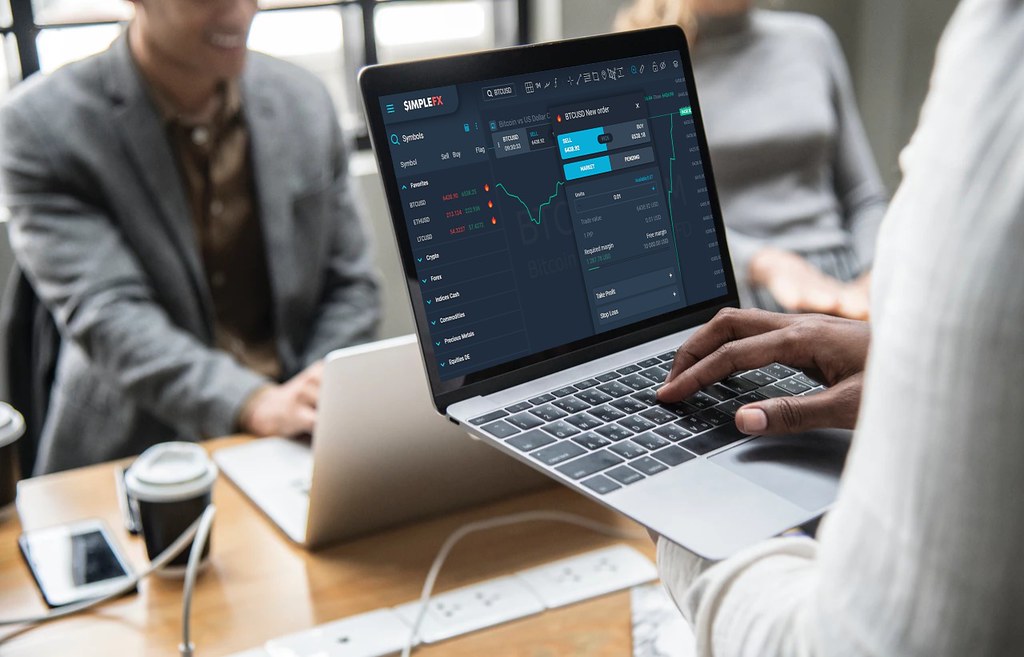Forex trading is a form of trading carried out through the medium of currencies. What this means is you buy one currency and sell another at an advantageous rate to you. The first currency is called the base currency, while the second is referred to as the quote. For example, let’s say that on a specific day, 1 GBP was equal to 0.79 USD. In this situation, we would buy 1 GBP and sell 0.79 USD for a profit of 20%. If instead, we had £0.79 = $1, then we would have lost 19%. This gives us some insight into how it works.
How Does Forex Trading Work?
Trading in the Forex market is relatively simple. You begin by opening an account with a broker – preferably one based outside the country you live in, as this will help avoid most taxes associated with trading. After doing so, they will most likely charge you a small amount of money for the privilege of trading on their website – but it can be done very quickly and is usually not too expensive. Once your account has been opened, you can begin searching for trades between currencies around the world. For example, if you see that EUR/USD (the euro against the dollar ) has fallen considerably, consider buying euros with pounds and selling them for dollars at an advantageous rate. Because currency pairs constantly fluctuate minute by minute, there are countless opportunities to make profits.
Why Trade in the Forex Market?
One significant benefit of trading in the forex market is how easy it is to get started. It takes minimal effort to open an account with a broker and begin making trades almost immediately. The other advantage, particularly for inexperienced traders, comes from the leverage principle that underlies this market. As long as you use your capital wisely – which means no margin call payments or transfers back into local currencies – then you can potentially make vast amounts of cash very quickly. Furthermore, because currencies are usually traded between banks, spreads are often kept relatively tight – allowing for small gains on significant transactions. Because trading in foreign exchange can be carried out with relatively small amounts of capital, you can begin trading at a suitable level for your needs.
Forex Trading in the UK
In the United Kingdom, there are several legal and tax implications to trading. The first point is that you must declare any profits made on your income tax return, as they could be treated as taxable income. Furthermore, if you make more than £11,500, you will pay capital gains tax at 18% on anything above this amount. To avoid these charges, you should set up an offshore account. However, bear in mind that because brokers usually charge for transferring money from one currency into another, transferring money through companies can cut costs considerably. This can result in serious savings over time – especially when dealing with large sums of money.
Are There Any Precautions to Take?
One of the main points that new traders should be aware of is the need to trade responsibly. Although trading in the forex market costs little – particularly because many brokers offer free or trial accounts – there are still certain precautions you should take. You should first make sure you use a broker outside your own country, as this will help cut down on capital gains, tax payments, and other legal complications associated with trading.
Another aspect worth being careful about is leverage, which allows for 200:1 trades instead of 1:1 exchanges. If you routinely carry out numerous trades using a high level of leverage, then it could seriously affect your trading account balance over time. You also need to understand that trading in the forex market can be highly risky, especially if you do not hold a licence – which is usually only obtained after paying large amounts of money and passing exams.
The other main point to consider is that you should never invest more than 5% of your capital on any one trade. This will help prevent things from getting out of hand, providing there are no major upheavals in world markets.





